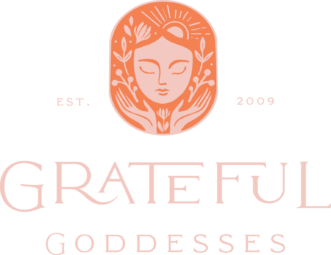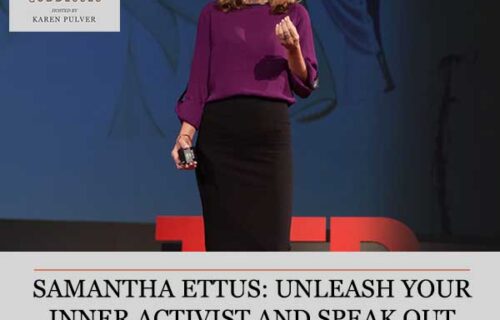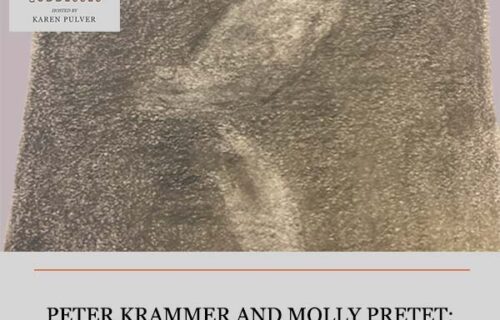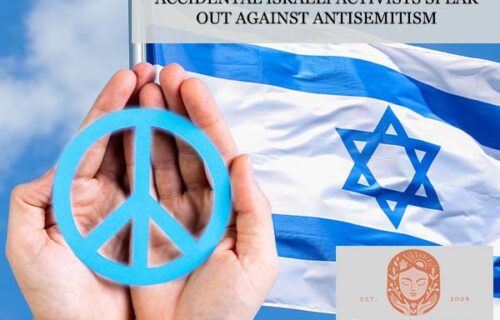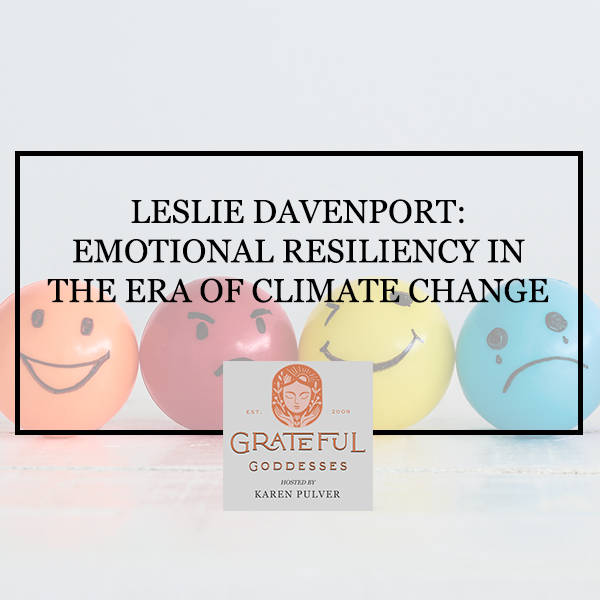
Leslie Davenport: Emotional Resiliency In The Era Of Climate Change
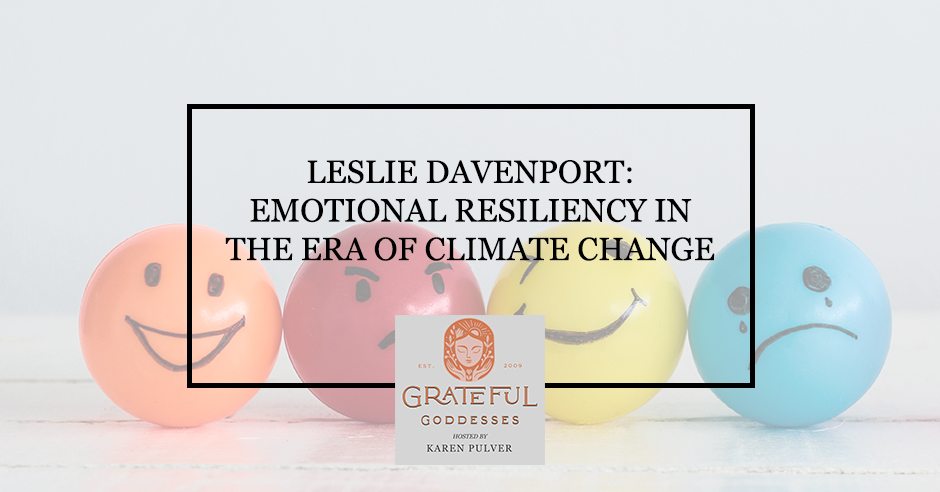
It is one thing to be personally affected by climate change by having your house destroyed by a hurricane or wildfire, and it is another to experience anxiety because of it. Many people do not even realize it, but these natural calamities, even if they do not directly affect your area, may be adversely impacting your emotions and mindset. Karen Pulver and Goddesses is joined by Climate Psychology Consultant and Educator Leslie Davenport to discuss how to gain emotional resiliency in a time of unpredictability by starting a collective response and avoiding political arguments as much as possible. They also touch on the subject of isolation related to COVID-19, explaining how to take care of your mental health and connection with others. Join them in a thoughtful discussion as they go deep about isolation, fear, and making shifts in our perspective to make the change.
—
Watch the episode here
Listen to the podcast here
Leslie Davenport: Emotional Resiliency In The Era Of Climate Change
Thank you, everyone, for joining us in the show. There’s so much going on in our world and our lives. I’m not sure about you, but just when I feel that I’ve got things under control and I can handle the day, something bombards me. In fact, a dear friend of ours passed away. When I’m looking back at him, I feel that COVID has contributed to his feeling of isolation and loneliness. I can’t help but think what could I have done? At the same time, I wished that he could have reached out to people, but also to have reflected back on some of the things that he could have done for himself personally especially during this time.
We all need help with that. We need to reach out to people to get that feeling of connection. I’m hoping that if you are struggling or even everyday struggles, every day-to-day things that you’re going through, especially during this time, that you will reach out and get help. Our guest is Leslie Davenport. She is going to be sharing with us her passions, and also to help us deal with this feeling of isolation and loneliness. In addition to COVID and the pandemic and people feeling sick, our world is feeling sick. Our Earth is feeling sick. How can we deal with that? How can we help? How can we feel better about helping? What about those conversations that we want to have with people when they are thinking that it’s all a joke, that it’s not real? We’re feeling like “No, this is real.” We have to do something about it, or like my cousins who went through a fire in California lost their home, how are they dealing with it afterwards and rebuilding their lives again?
Leslie Davenport is a climate psychology consultant and educator. She’s the author of three books including Emotional Resiliency in the Era of Climate Change. Her fourth book will be released in spring of 2021 by Magination Press, and will support middle-schoolers in building emotional intelligence and resilience for going into a warming world. She’s a founding member of the Institute for Health and Healing, one of the nation’s oldest and largest integrative medicine clinics. She lives in the Pacific Northwest and is on faculty with the California Institute of Integral Studies. Thank you for joining us and welcome, Leslie, to the show.
Thank you so much. I’m happy to be joining you in this conversation.
I’m happy you’re here. I saw you on a webinar back in March, which seems like years ago. When the pandemic hit, we were settled in place. For me personally, I was having a hard time understanding that whole concept of that lack of control and isolation. Some of the things that you said, you suggested practical things that I did. One of them was hanging pictures in my window. I walked around the neighborhood and gave my neighbors an anonymous letter. I didn’t want them to know it was specifically from me. I said, “Everybody, let’s put happy faces and different things each week.”
Another actual practical tool that I got from hearing you speak was to have an hour of anxiety. I don’t even remember the exact terms, but a worry hour. That helped me so much because I could do everything I needed to in that moment, scream or jump up and down or cry, and then that’s it. I put it away and then enjoy my day. I’m excited to talk to you to dive into those and to other things that you’re going to share with us. You seemed to have many hats. Please tell us which one you are most passionate and more specifically with climate change. Do you see clients talk specifically one-on-one about their anxieties dealing with climate change?
I have several branches of the ways that I work, but climate change is at the center of it. Some of it is I am a licensed psychotherapist. I do see people in my office. Since this is a specialization area that is sometimes hard to find in the mental health world. Sometimes people do seek me out specifically for that. Terms like eco-anxiety are becoming much more common in the news and articles, and people are relating to that. My name will pop up as people search for that. The other thing I do in my practice is people fill out an intake form. They give me a little information about their background and I have a question in there that says, “When you hear about what’s happening in the world, including climate change, how does it affect you?”
Even if someone came in to work on something else, it starts to introduce the possibility that if that is an added area of stress, that it’s a welcome area to include. We’re used to thinking with therapy, with counseling, that we’re going to talk only about work stresses or relationship issues or making a big decision or resolving things about how we grow up. As you’ve already mentioned, we’re affected by our environment socially and what’s happening in the world on all kinds of levels. It needs to be a part of what’s welcomed in a therapeutic conversation.
I’d like to introduce you to our Featured Goddesses now who are going to join us in this discussion. Rachel would like to start to talk more about what’s happening in 2020.
It’s nice to meet you, Leslie. I’m reading a book by Glennon Doyle and her daughter is fixated on what’s going to happen to the polar bears. There’s a story about the preschool teacher talking about climate change. When it’s over, all the kids ran outside and played. Her daughter held onto it for months and kept asking about them. In the end, Glennon Doyle was like, “We all should be carrying this much. She’s not just an extra sensitive child. We should all care.” It’s such an interesting avenue that you’re taking because it’s there in politics. It’s there in how we all live our own lives. It is always in the back of your mind. With your focus on it, if there are ways for us to think about our own carbon footprint and what ourselves in our own little way doing to the environment. If there are things that you can do like simple things to do or even ways to think about that you can calm yourself down if you feel that you are practicing safe measures.
Nourish the flame within yourself and stay true to your values to influence others, even if it doesn't work all the time. Share on XI love that story because I do agree that paying attention to what’s happening, COVID, climate change, state of the world, is asking us to look more deeply, to care more deeply, to maybe act and behave in different ways than we are accustomed to. Part of what we all need to do and we’ll be talking about this is, “How do we cope and what are some tools?” That’s important but I don’t think we can just go to, “Help me feel better.” It’s got to be, “Let’s pay attention.” Big things are happening. It’s not the way it used to be. While COVID is going to resolve at some point, most likely, we’re looking at the state of the world with a lot of ongoing large issues.
Rather than only attending to self-care, we do need to be willing to bring up that courage and that vulnerability to say, “What can I do? How am I a part of the problem and can be a part of the solution?” Much of these issues are woven into every human endeavor. That’s part of the answer to the question of, what can I do? I’m a big believer that climate advocacy or other types of social justice issues are not limited to protests or carrying a sign in the streets. That’s what comes to mind when you hear about somebody’s an advocate.
I’m not against that, but my feeling is that the way we’re doing business in every brand, how medicine is done, how education is done, and how business is done needs to be re-examined through a sustainability lens. Part of that is an invitation that wherever you’re working, whatever your involvements, there are ways you can weave conversations, changes, modifying how things are done, reducing waste, whatever it might be, educational programs, and that in a way it makes sense to start within your own sphere of influence. Even the willingness to have conversations, to talk about it, to raise the awareness is an important step and the bigger part of supporting necessary change. Does that get to the question you were asking?
It does. Thank you. That was a beautiful way to say it.
Alyssa, along those lines, has some questions about that too.
Leslie, you said in the beginning that you add a question to your intake materials about eco-anxiety. I’m wondering about the differences that you see in the generations, and how they are either affected by and feel anxious about climate change and perhaps even in their level of engagement with the idea of climate change, especially our generation didn’t grow up with climate change being part of our everyday conversation. It is now, but it wasn’t part of our childhood like it is for millennials, for example. I’m wondering if you see a real difference in the level of anxiety based on where you fall in the generations.
I do. Part of answering this is that I was approached in 2020 by the American Psychological Associations Children’s Book Division to write a book for kids from about ten through middle school on coping with climate change. This is a publication that does things like, if you have test anxiety, what do you do? If you’re being bullied at school, what do you do? They’re recognizing how pervasive this concern is even among kids as young as ten. Part of it is because it’s more in the conversation now. People are either directly affected or may know someone who’s had to deal with smoke or a fire or a flood or a hurricane or whatever it might be.
As the younger generations are having their eyes open to this and start to look at what is going on, it’s quite scary. Unless we make significant change, they’re saying, “This is the world we’re inheriting. This is what we’re growing into.” The questions they have now from 18 and in their 20s and 30s are questions like, “Should I even start a family?” These were never questions that were considered before, but they’re seriously saying, “Would I want to bring a child into the world given what they’re saying what it might be like? Would that be unethical? Would that be unwise?”
When I started doing a little bit of research for this book, I’ve worked mostly with adults, but I decided to take on the challenge because it was in need, and I felt like I could rise to it. I interviewed a bunch of kids randomly and went to a few schools. It was very general. I’m like, “What have you heard about the climate change? What’s on your mind?” It amazed me how kids as young as 10, 11, 12 articulated the scientists’ views quite well more so than their parents sitting off on the sideline going, “Where did you hear about that? Are they teaching that in school?”
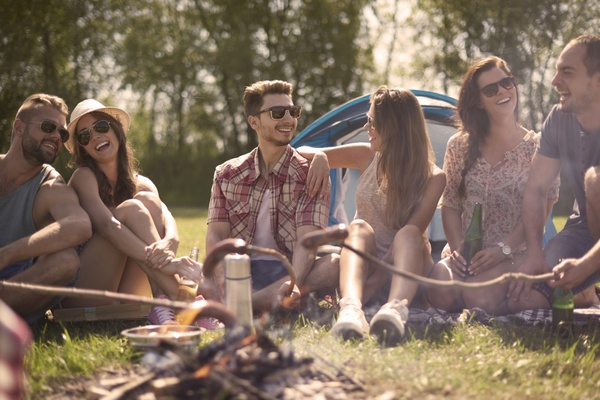
A lot of times they would say, “I hear a little bit about it and then I do my own research.” It’s very much on the minds of the younger generations. Some of them have some anger with it too like, “Why didn’t the grownups or the generations ahead do more? Now it’s falling into our lap.” There are lots of big feelings there, the upset, the anxiety, and the rising up. A lot of them are saying, “Let’s take this on and do what we can.”
This is the world that we have left them and they’re inheriting. I’m sure there’s a lot of anger there too like, “Why did you do this?” There were years and years of innovation, growth of business and all of that, but we didn’t take into account what we were doing. I say we and the global Baby Boomer-type outlook, but it must be very scary for young people.
Part of my approach since I’m trained as a psychotherapist is I’m impairing the science and also helping them weed out what’s not true, weed out what we know so far with emotional resiliency practices and building emotional intelligence. It’s the same question we’re asking here for us, “What capacities do we need within us to face the challenges of whatever life may bring?” Climate change being one of the big ones, but whatever it may be. What happens when they feel large and it starts to feel we’re possibly becoming overwhelmed? What do we do? That’s what I’m trying to put side by side in the work that I do.
Camille is now going to get a little political. She volunteered for this question.
I did, I never shy away from a political conversation. Leslie, it’s nice to meet you. Not to get too political but however, the mask has become a political issue and so has climate change. I wonder in a normal regular conversation, how do we approach it in a way where it doesn’t become political? Are there practical things that we can do in everyday with our families, friends, Facebook or whatever things that we can do to work with that? I live in Raleigh, North Carolina, just to give you some context as to why this is important to me.
You guys aren’t shy about asking the big questions. I wish I had the big answers, but I’m happy to share the ways that I grapple with it. There may be things that will be useful to others. One of the things that I try and do when I am speaking to someone with very different perspectives and points of view is I try and begin by listening. There’s this impulse in me to want to set it right and straighten them out after all, “Open your eyes. All the things you hear, these are not opinions. These are facts.” We know from studies in behavioral change and communication that it usually gets others to kick up additional resistance and digging their fields. As hard as it can be sometimes, I try to start with listening. I believe that somewhere, even with what might be very considerable differences, there may be threads of commonality like looking for help. If it can’t be around climate or masks or something specific. Maybe it’s related to air pollution in the area or water quality in the area, which has ties to these other bigger issues.
That’s one thing that gets unruly about these topics, it’s a good thing and a hard thing, is they’re interconnected. Our beliefs, our actions, our empathy or a lack of empathy, our ambivalence about changing our life because we might even see things that we believe would be beneficial, but it might require that we sacrifice things we want. I try and start by listening. I try and start to keep my antenna up for common ground. Even if it isn’t the big picture of getting more aligned in points of view, it might be a starting place where instead of being oppositional, we can face the same way and combine some efforts.
The other thing I’ll say in general about so much division and different points of view, this isn’t a precise ratio, but it’s helpful to think of it this way. I sometimes think of the whole being made up of thirds. A third of the people saying, “I like the way you do. I follow science. This is important.” On the far end, the other third is maybe what I call Teflon mind, nothing will stick. It doesn’t matter what you say. It’s going to bounce off, but the middle third is where fruitful change is possible. I put in that middle third people who might not know a lot about it, people who might be skeptical, but are curious or willing to read an article or hear another point of view. That middle third is fruitful ground because if the conversation is there or the ways of working together can be aligned, then we’ve got two-thirds majority. If we don’t, it could tip the other way. Rather than trying to convince someone or debate someone who’s got strong points of view, I look for the openings where there’s a little more movement, fluidity, flexibility and possibility.
That leads into Joelle’s question.
It’s nice to meet you, Leslie. There is a lot of overlap in what I was thinking about and what Camille was talking about. For those of us who believe strongly and feel passionately about what’s happening to our world, being in conversation with others who hold different opinions and honoring that we feel strongly about this, and not letting it develop into argument or “I’m going to try and change your mind,” but rather how can we perhaps strive to find some common ground? This is very similar to what you were talking about. I like the idea of starting with listening and dividing things into thirds. I’m wondering if you can say a little bit more about keeping ourselves together and not getting trapped in that cycle of trying to convince the other person that my position is the right position and I’m right, you’re wrong.
The actions we take on whatever scale get others involved in becoming part of the fractal pattern of life. Share on XIt’s challenging, especially like you say, if we passionately believe something and we feel like it’s important for us and the people we care about on the larger world, it’s hard not to convince everyone. One thing that’s been helpful to me, and I borrow it from a Christian parable, even though I don’t particularly follow that faith tradition myself, but it’s the idea of when we speak what’s true for us, it’s like spreading seeds that may take root or may not, the way it went and some fall in rocky ground and some fall in rich soil.
The idea being that some things may take root in sharing your point of view, and know that there’s not the conditions right now for that to happen, but like seeds, they’re tremendously resilient. Sometimes if you say something, even if it doesn’t take root with a person right then, other things are going to be happening in their lives and it may be something they go back to. They go, “That reminds me of that other thing or this person is saying the same thing I’ve heard before, but now I’m hearing it in a different way.”
It’s to know that we don’t always know the immediate measure also of our efforts. I experienced this as a therapist too, but it’s just an example of conversations. I’ll have a session with a client and we didn’t get anywhere. They’ll come back next week going, “I’ve been thinking all week about what you said,” and I’m like, “What did I say?” or vice versa, “This got to the issue,” and they’re like, “What did we talk about last week?” Part of it is to nourish that flame within yourself or however you want to think of that passion. Stay true to your values, use your voice, know that not everywhere all the time it is going to be effective, but that we never quite know the impact that it may have. If it did take hold with one person, that might not feel like enough, but maybe they have taken it in other places too and written about it or spoken to others. You never know.
I appreciate what you’re saying about planting seeds. I’m a mental health worker also. I have seen eco-anxiety and how it contributes particularly now, given all of the other stressors. We’re living in this constellation of many stressors working on us and how eco-anxiety can contribute to that trauma bath that we’re soaking in so much of the time. It’s heartening to see the work that you’re doing, and also remember that you don’t have to climb the mountain on the first try and planting seeds here and there. You never know where or when something is going to flower. I appreciate that. Thank you.
Even on this platform and this show, our readers know our seeds. You know what we’re talking about. Leslie, if you could share with our readers, what are some seeds that you would like to plant? What are some things that you would like to put out there that you want readers to know? They may not take it in, it may fall off of them, slip off, but maybe there is that third of readers that it will soak and take an effect. What are some things about our planet? We know what’s going on right now from the news, but what is something that perhaps we need to be more aware of?
A couple of things are coming to mind. One is the planet or policy change. Some things feel so big and it can feel like we’re small, that we can’t make the difference. It gets to be the story we couldn’t put into our minds. We’ve touched on that a little bit already. You can work within your own sphere of influence. I’d like to add a concept, which is what’s being called fractal connections. Fractals are these patterns that show up in nature, the way the seeds of a sunflower might shape a spiral and you might see that in a seashell. You might see it in the galaxy, you might see it in your thumbprint.
There’s this idea that the actions that we take on whatever scale it is, if others get involved to become part of this fractal pattern. The term diffracting, when light diffracts, it means light going through small openings or opaque things. It’s to underscore the potential far reaching benefits of collective efforts that when we’re looking at ourself, it feels small, we can’t do it. If we tell ourselves that story, we made back off of the things that are in fact very doable. We can’t operate alone. Part of what climate change is showing us is the true interconnected nature of things.
If I trace that from what I say to myself, what I believe like that example of I’m too small to make a difference, it affects my behavior, which affects the environment, which comes back to affect us. It’s almost as though the neural pathways through which these thoughts and impulses fire are like part of the threads and the web of life. It’s connected. You mentioned in the introduction with COVID and everything else, the struggle people have with isolation and loneliness. There’s certainly truth there that we could talk about, but there’s another level entirely where we are and always have been, and always will be connected. There is something useful about trying to keep that in our awareness.
That’s one thought. The other one, and this was coming to me when I was hearing about trauma, trauma theory, the trauma suit we’re all in. It’s a concept called the window of tolerance or the zone of resilience. The way it’s normally conceptualized but there’s this place in which we operate. We have ups and downs but they’re not too extreme. We can function pretty well. When there’s too much on our plate or the situation feels too big and we go outside our window of tolerance, we either lash out, get angry and get reactive. We lose our ability to reason through things or we check out, dissociate, dropout and withdraw.
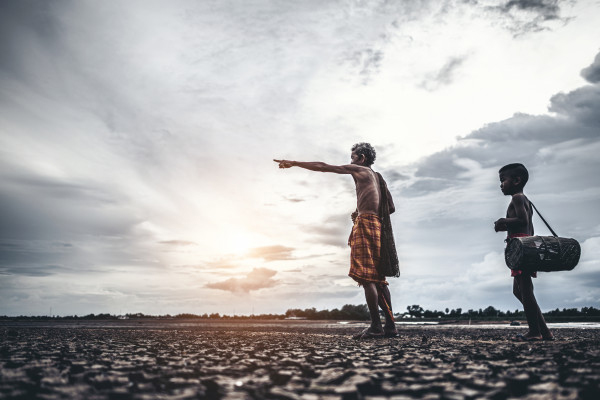
It’s good to understand where our edges are, but the point I want to make is we can learn to stretch our window of tolerance. Given how big things are in the world, that’s a task we all need to undertake. It’s stretching our capacity to bear witness to more. We have that ability to be more resilient than we may even realize or believe. The how-to of that is varied. It’s everything from practical stuff like the good sleep habit, eating well, exercising and all those things that you might think of. Beyond that, it gets personal and individual. What are the things that bring you joy?
Not all of them are available during times of COVID, but many are. For me, I love dancing. I’m used to do partner dancing except now that’s not an option. One interesting thing about COVID is that I’m taking tap dancing classes in my living room being broadcast out of New York. A studio in New York, that being in the State of Washington, I wouldn’t have had access to. Some things are closing down. Other things are opening up. Are we paying attention to when we’re utilizing those other opportunities?
Taking a good inventory, what can stretch your window of tolerance? Some of it is practicing and willing to be uncomfortable. When things are hard, it doesn’t necessarily mean that it’s bad. It may be our stretch zone. It may be that we’re considering things in a new way or we’re being asked to step up in ways that we haven’t before. Maybe if you’re quieter and introvert, the idea of speaking out on climate change or some other issue is challenging or if you’re good at talking, the idea of starting with listening is challenging. It’s like, “Where can we go from our comfort zone to our stretch zone without going into our panic zone?”
Feeling a willingness, maybe even a commitment to explore a stretch zone so that we can be present with open heart, stay present with things that are challenging. This is an ordeal. It’s a difficult time. I don’t want to minimize that. I do think it’s worth considering taking the challenge of, “What else is in me if I reach a little more deeply, or if I put my values to the test in ways I haven’t before, or if I follow through on things that I’ve thought about doing but haven’t gotten around to yet?” This is a great time to consider that.
We have heard that from many of our guests about stepping out of our comfort zones and trying new things. Even this show, I’ve had to pivot to do this. It was going to be just gatherings here in Chicago, and now I’m reaching you and Washington and all over the world, which has been incredible. Can you talk more about isolation now? Some questions about that, especially to our readers who are alone right now and having to deal with perhaps things are closing up again, and struggling through those. It’s like the things that you shared back in early March 2020.
It’s a tough one. I wish there were a simple answer to this because people are fatigued at navigating all the COVID restrictions. There has been this little tease where things are opening up a little and no, they’re not. We get tired of that. It requires again that we dig a little more deeply. I’ll try and come up with some more practical things as well. The other thing that’s a paradox to this that I want to include is when it feels like you’re low and you can’t even engage the things that you know are more joyful or more resiliency practices. It may mean that you’re being asked to spend a little time believing. We’re in a time of loss on all kinds of levels. On a personal level, it is not being able to do some of the things that are valuable, healthy and essential to us like spending time with friends. We’re social creatures however introverted or extroverted we are by nature.
Grief is a good thing in that if this is a situation and we’re facing it head-on, not only are we going to look for creative outlets and creative things to do, and new ways of connecting, but there are things that are going to remain unavailable for a while that are hard. Sometimes if we take the time to feel that, to acknowledge it, to journal, if you like to write, scribble or collage, if people like to express creatively, to talk it out with a friend, whatever it may be, and not always feel like you have to bump yourself up into a happy moment. It clears some of that energy out and there can be a more natural sense of flow to our feelings. If that’s what’s truly going on, there needs to be a little bit of room for that too. We certainly don’t want it to predominate but it’s in the mix right now.
There are even some things that we will no longer ever get to do again to the capacity that we used to maybe. What do you guys think?
It’s interesting that you were talking about grief. I started thinking maybe one day there are these stages of grief. We’ll look back and the historians will write about the stages of COVID where we can do this, we all went into this, doing jigsaw puzzles and doing everything, then fatigue set in. Now we’re frustrated, anxious and angry. There are these stages that we’re all experiencing globally and in our own households. One thing that has been a problem throughout is this lack of connection to the same extent that we’ve been able to do so before. We have Zoom and we have computers and everything, but that’s lead to so much anxiety. I’m sure that’s what you hear a lot in your practice. I also think that it’s caused us to think about where we can gain back some control.
You were talking about stretching our resilience, but maybe we think about it in terms of, “What can and what can’t we control?” We’re not personally responsible for a vaccine and we can’t do anything, but we can wear a mask. We can go out and do our part. We don’t put those masks on the ground that I see as I’m walking every day because that’s not right in many different ways. I wonder if that’s a tool that we can think about adding to our own toolboxes, think about the ways that we can still have some control over our lives, even at a time when so much seems to have been taken out of our control.
We must learn to stretch our window of tolerance, given how big things are in the world. Share on XThat’s always a good thing to sift through. What can I do? What can I control? Let me make sure I’m following through on those things. What can’t I and how can I let go of that? That’s a fundamental great thing to consider. I like what you’re saying about the stages of grief because it makes me think as you were saying that, there’s a lot of bargaining that’s been going on, “I’ll wear a mask for six months, but that’s it. If I do this, then I want this.” We’re being tested beyond those limits at this point.
We do find opportunities to control our own situation, whether it’s what we do for the environment and who we put into elected office. Those are things we can help control. It’s what we’re trying to do to regain back what we think we’ve got lost.
On a personal level with this time of more isolation, I have found a few bright spots that have come in. For example, old friends that I haven’t connected to in a long time have reached out and have reconnected because everyone is trying to find ways to build up our networks. I never enjoyed cooking that much, but now that I don’t go out to dinner, I’ve done baking and things in my kitchen, and I discovered these new, fun things. I’m not sure if they’ll last beyond COVID or not, but it’s been fun. I do a lot of writing and I’ve appreciated this little bit of time that’s carved out because I’m here. I’ve been able to use that well. It’s going to be different for everybody, but without trying to sugarcoat anything at all, it is like a little bit of a treasure hunt. What’s available to me now that wasn’t before? How many times have I said I’ve wanted to do X, Y or Z? Maybe there’s a chance now to do some of that.
Does anyone have any other questions for Leslie regarding climate change or isolation or anything along those lines?
I do. I have a younger child and I think about this even with teenagers. When you brought up the whole idea that you’re grieving on all of the things you can’t do, how do we talk to our kids about who we’re looking forward to different life events like graduations, proms, dating, all those things they can’t do. Try to explain finding those treasure hunts or other ways that they can find ways to connect on that level. Although I’m not wanting my daughter to date any time soon, it’s thinking ahead. It’s inevitable, I can’t stop a train from coming. How do I help buffer it in a way that it’s something to look forward to these new ways that they’re going to have to do it?
I want to pair it with something I said that’s relevant to us too. The kids are going to be feeling their own frustration, their own losses, and their own discouragement. It’s important that they know that they can say any of those things too. We do want to still look for, “What can we do?” We don’t want to try and jump over that part because it festers and doesn’t go away. I know we sometimes are afraid that if we make too big of a space for that, it takes over, but it is usually the opposite. If a person is seen, validated, heard and empathized with, it relieves some of that. Do not skip that step. Yet to the extent, it’s possible to maybe even brainstorm with them creative ideas. When something is possible that comes out of kids, I’d like to do this. I’d like to try this. It’s always stronger than what we might be introducing if it’s reasonable. I don’t know if I have too much more besides that because it’s that dilemma of on the one hand looking for creative options and acknowledging it’s not the way we would prefer it to be and that’s true too.
To add to that, I know Rachel and Alyssa also had kids who graduated during this time, and it was changed. My daughter graduated high school. It was sad that it wasn’t going to be that typical graduation, but it was better because I have two older children who graduated the traditional American way, and my daughter’s graduation was more personalized. It was her walking in the auditorium with us being on stage, getting her diploma. We didn’t have to find parking. Maybe it was better for us. We didn’t have to get that first-row seats. She had a song playing that was her very own song. We went and had lunch in our backyard. It would have been great to have a handful of friends, but she did have two of her best girlfriends.
She said afterwards that was all that she wanted. She missed prom and all of those other things. When we look back at that actual graduation, we all felt like it was such a special way and it’s a new way. That’s what I mean, a lot of things are going to have to change and perhaps be the new normal of how to do things. Rachel, I remember you were saying you felt so sad and you were grieving for your sons also missing out on graduation. Did you find that you liked how it was or is it the opposite?
Truth be told, I didn’t have a child graduating. I did have an eighth grader. I keep forgetting he had a graduation.
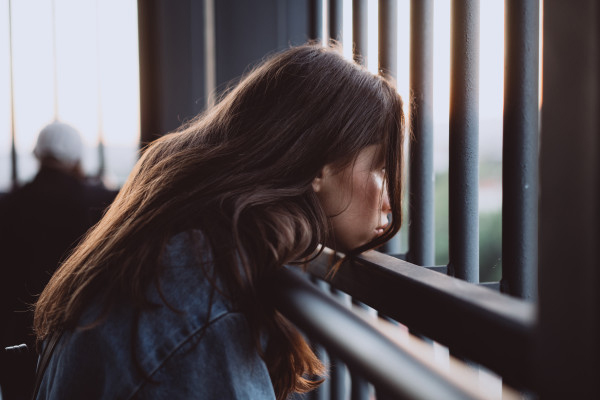
I thought you did.
Alyssa, you had a college student graduate.
Joelle did too. They’ve known each other.
That was hard. We’re all experiencing loss and grieving the loss of some big life event. With my niece’s wedding, which was out of state, my son didn’t have this big graduation processional for college and with us snapping pictures, but it’s no different. We can all point to something or multiple things that we did miss out on. I’m thinking down the road and how we’ll all look back on this. That’s going through my brain right now. Hopefully, like Karen was saying, they’ll look back and it’s like one for the history books. We’ll be that generation or that college graduate, the class of 2020 that missed out. I sure hope class of 2021 gets to graduate in some normal fashion. We all felt that loss and now we’re thinking, “Let’s get done with this.”
To piggyback on that, as hard as it was to sit with my daughter, having that big disappointment, and it was a big disappointment. It’s something that we’ve been planning and talking about for so long or college graduation, who are we going to get together with, who are we going to celebrate with, on and on. As hard as that was, it was also such an opportunity for building resilience, for stretching that window of tolerance and learning that the world, as much as you plan and as much as you create expectations, sometimes it works out the way that you planned it. Sometimes we have to pivot. We have to go back to the drawing board, and those are hard lessons. Sometimes when you learn them early, even though they’re painful, they gear you for what’s to come in life. We never know what’s coming around the corner.
I’d love to underscore that a little bit too. I do think there’s this natural thing as parents in our DNA where we want to protect our kids, give them the best and keep them out of harm’s way. There are some cultures that intentionally introduced through a rite of passage around adolescents, introduce them to hardship as a way of doing what you’re describing. It’s the chance to have to navigate an ordeal for what it teaches, for how it helps us mature and grow up, for what they can learn from it. It’s lovingly and intentionally imposed. We’ve all got a dose of it without asking for it, but very much along the lines that you’ve said, not only is that possible, there are some places that design it that way.
I talk about this idea that my husband and I have been walking every morning. We’ve been doing it since we started quarantining. It’s like in Israel, when you graduate from high school, there are two years required in the Israeli Army. If the United States, especially during this period of COVID and craziness, it’s too soon to implement, but it would be so beneficial for there to be a program for American students when they graduate high school of like a Peace Corps program. Whether it’s in the United States or in other countries, but it’s a one-year commitment of students. It’s incorporating this hardship like viewing hardships, serving others, serving a national good. That could be an amazing change to American society.
It can be called 2020 camp. It is a great idea. I also know that I’ve heard from friends who have younger children that would go away to sleep away camp and how sad they were. At the end of the summer, the parents were telling me that it was the best summer of their children’s lives because they played in the backyard and the street. They didn’t have to have a programmed activity. It’s like the way you look at things. If you can twist your way of thinking a little bit, look at it through a different lens, that could help too. Leslie, are there any other thoughts you could share with us on what we’re going through and some things we could do? You said some great things in the talk in March. Is there anything else you can share?
One thing I want to put out in terms of emotional support resources is especially as it comes to climate change since that’s my primary one, but the principles would apply to other things. There’s a great organization called the Good Grief Network. I believe all their gatherings, which are online now are free. They have a lot of online resources too, but it’s a comfortable open environment to bring these concerns with other people who are sharing the same thing. Similar to that, there’s something called the Climate Psychology Alliance, which has talks and resources. They do something called the Climate Cafe with a similar idea. If this is on your mind, this is a way to talk with like-minded people.
For people who would want something like actual counseling or therapy support, they are creating a directory of what is being called Climate Aware Therapists. One reason that’s important is that all human endeavors, not all of the mental health field, is fully on board with this. If you’re bringing these concerns to someone less aware of the bigger picture, it can be pathologizing or they think you’re exaggerating, or you’re not going to quite get that empathy and support that you’re after in facing it from the way you understand it. That’s also a great resource to know about as well.
Always utilize every opportunity that is opening up around you. Share on XWe’d like to thank you so much for helping to educate us and talk with us about self-care, as well as our care for our planet, for our world, because they’re all interconnected. We look forward to speaking with you again sometime soon. Perhaps we can all gather in Chicago or Washington or North Carolina. Thank you so much for joining us on the show.
Thank you. I’d love to reconvene.
—
Here we are at Favorite Things. As we talked about with our guest, Leslie Davenport, she talked about finding things of joy and things that make us happy. Those are ways that we can control our situations because we know what we love. Even if there’s something that we don’t love, we can turn it around. We can see the silver linings. We can see the happiness and joy from it. This is our adult show and tell, where we get to share some of our favorite rituals, objects or products. I will start. This is a tea called Get Relaxed. I love this tea. There are all different kinds. I don’t know if you’ve seen them. I drink this one to get some Z’s. I have this at around 4:00 every day. I interchange with a glass of wine. It helps me to stay calm, chill and feel Zen, especially when I am feeling anxious. For some reason, Leslie, and maybe you can help explain why around 3:00, 4:00 is when my utmost anxious time comes. Maybe it’s because it all builds and then I let it out at that time, but that’s when I have my tea.
I don’t know a lot of the science, but I know we do have biological rhythms. It’s also why a lot of people wake up around 3:00 in the morning or 3:30 and have a little trouble getting back to sleep. There are these bio rhythms that we have.
It’s true, I do wake up at 3:00. I’ll have some tea and I’ll go right back to sleep. Camille, what did you bring?
Mine is my shirt because it’s my best friend’s. He’s a drag queen, Jeremy Austin. His drag queen name is TheyCallHer6. Anytime I’m stressed out, and he’s been through me some rough times and vice versa, he’s my calming tea. He reminds me how to calm down and to think back on good times and how to get over him again. It was hard being hunched down. One point I forgot what I brought and so I was hunting around.
You were so engaged in this conversation. That’s like when the glasses are on your head, but you’re looking all over for them. Alyssa, what did you bring?
My calming tea is my daily walks. I know, Rachel, you’ve talked about this a lot. I need to get out and walk every single day sometimes with my husband, a lot of times by myself. It’s not just any walks because the neighborhoods around here can be a little crowded, stressful and traffic. I’m deep in a big city, so it’s a lakefront walk. We are very blessed that here in Chicago, we have a beautiful lakefront. It’s 7:00 in the morning, it was beautiful and quiet. We see the skyline. Somehow being next to the lake and very near nature that’s not concrete, that’s real nature, it has the most calming influence on me. I try to do it early every day, so that sets my tone for the day, and that I go off and feel like I’m starting the day as Zen as I possibly can. That’s my calming tea.
As we learned from another guest, isn’t walking meditative?
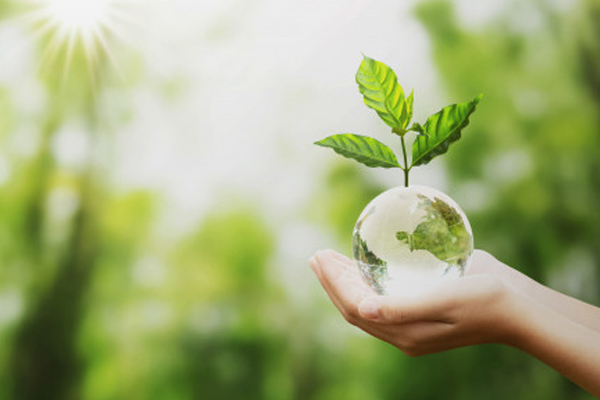
It can be. Leslie, I’d love your take on this but for me, I feel like it’s when I can think about all things good, bad and ugly. Sometimes I have music and sometimes I don’t. It’s my own form of meditation.
Two things come to mind about that. You’re right, we think of stress being in our thoughts, which it is and in our feelings, which it is. We’re learning that it’s our nervous systems that holds on to trauma and forms a stress. The movement does do a lot to shift our physiology, which then ripples out to our thoughts and feelings. The fact that you’re orienting to the lake, to this natural body of water and enjoying the beauty, that also amplifies the benefits. Sometimes I say, “Get green when you’re blue.” If you’re feeling low, but you have a chance to be in a beautiful natural environment, that’s a nice shift.
Rachel, what did you bring?
I have to comment that this is that same vintage blouse, but it’s a rubbed poly chiffon.
Just to elaborate, she wore one for the last episode that we did.
I’m wearing my green one now.
What is the name of it?
It’s from the ‘70s. It’s made of rubbed poly chiffon. It’s like all these lines and it’s funky sleeves. I love being able to wear all of my vintage clothes for these things. This is a gift that I received from friends that were staying with us in our house. They were here when Ruth Bader Ginsburg passed away. I love her. I’ve already shown on Favorite Things like a little plastic doll of her. They gave me this gift, which is like a little stand. It’s a quote from her and it says, “Fight for the things that you care about, but do it in a way that will lead others to join you.”
Without even knowing how relevant it would be to our conversation, it’s exactly what you were saying. We all have strong opinions, but we have to craft them and be able to share them in a way that they’re heard. You talking about listening is what I am trying to work on all of the time. I am happy to share my opinion. I need to practice listening more because it does work and help. It enables you to craft your argument around what the person is saying. That is truly a life lesson for me. I love that quote from Ruth Bader Ginsburg.
My favorite thing is getting back to my books. Since the lockdown, I have been so focused on sitting in front of screens, whether it’s working all day, or a good chunk of the evening in front of my computer screen, or zoning out dissociating in front of the TV screen, or mindlessly spending all kinds of time in front of my little cell phone screen. I felt like what is happening to me, I’m turning to jelly inside my own mind because I’m either being overstimulated or I’m using it to zone out. I realized when’s the last time that I did something that helps me to come back into myself and it’s calming for me and always has been. For me, one of the biggest things is losing myself in a book, whether it’s for ten minutes or for the whole afternoon with a blanket on the couch. That is so nourishing for me. It always has been, and I neglected it for so long because I was wrapped up in trying to adapt and keep myself level in this new situation that we’re living in. I am rediscovering how self-soothing it can be for me to close the computer, put down the TV clicker and sit quietly with myself, my friends in a book and come back to myself.
Just twist your way of thinking a little bit and look at the bad things through a different lens. Share on XWhat book is it?
This has been sitting on my bookcase. It’s Truly Madly Guilty. It’s by the author of Big Little Lies. This should do me for a little while.
Leslie, last but not least, what is one of your favorite things that you’d like to share?
When I was asked that question, I brought a quarter pound of wildflower seeds. It goes with our theme of seeds. I’ve started gardening during this time. I love that this isn’t going to just stay in my hand, it’s going to go in the ground. I’m not going to see him for a while. Hopefully, they will be spectacular at certain points. They’ll fade, but I like the flow of the whole life cycle. There’s such resiliency in plants. If any of you grow flowers or know, once the blossoms fall off, most of them, if you open the little pod that the blossoms were on, there are probably 50 seeds from one flower. It’s like, “How hard does life want to go on? I’m going to do abundance to make this work. I’m going to expand.” I’m excited about this.
I didn’t know that about inside the bud. Did you guys know that?
A Marigold or a Cosmos, if you don’t need those kinds of flowers. At some point when they’re dry, pop them up and you’ll see the seeds or poppies do that.
Thank you for spreading all the seeds of knowledge and for joining us on the show. Thank you so much.
Thank you. What a beautiful group of women and goddesses.
Thank you.
Important Links:
- Leslie Davenport
- Emotional Resiliency in the Era of Climate Change
- Good Grief Network
- Climate Psychology Alliance
- Truly Madly Guilty
- Big Little Lies
About Leslie Davenport
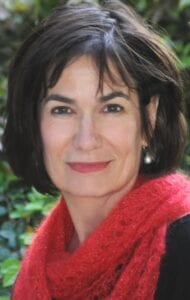 Leslie Davenport is a Climate Psychology consultant and educator. She is the author of three books, including Emotional Resilience in the Era of Climate Change.
Leslie Davenport is a Climate Psychology consultant and educator. She is the author of three books, including Emotional Resilience in the Era of Climate Change.
Her fourth book will be released in Spring 2021 by Magination Press and will support middle schoolers in building “emotional intelligence” and resilience for growing into a warming world.
She is a founding member of the Institute for Health & Healing, one of the nation’s oldest and largest integrative medicine clinics.
She currently lives in the Pacific Northwest and is on faculty with the California Institute of Integral Studies.
Love the show? Subscribe, rate, review, and share!
